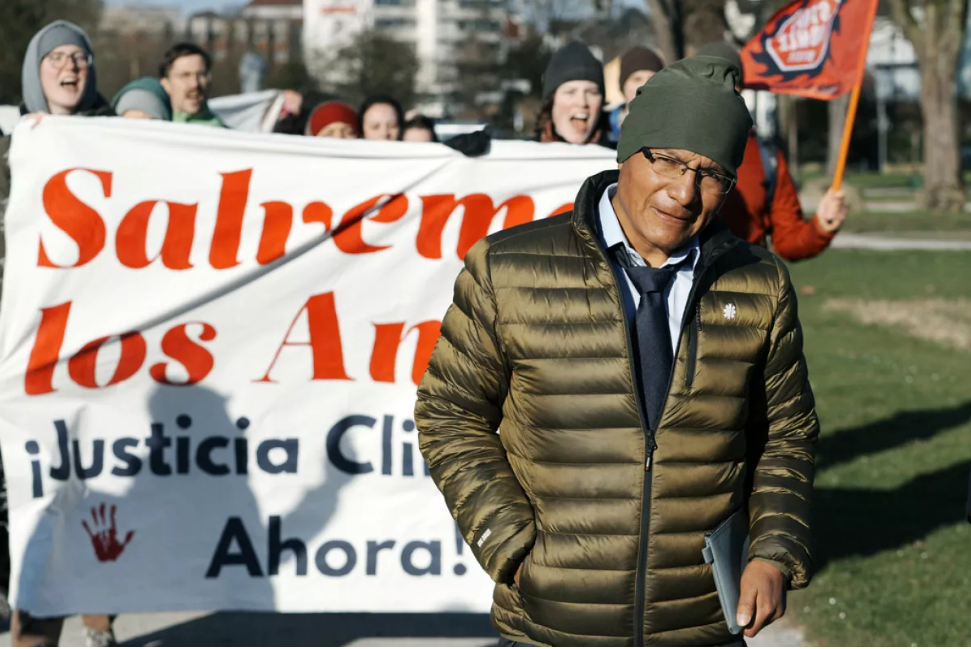
Peruvian farmer Saul Luciano Lliuya has spent ten years seeking justice, arguing that RWE should bear part of the cost of protecting his hometown, Huaraz, from a growing climate disaster. His case, now being heard at the Higher Regional Court in Hamm, Germany, could set a precedent for corporate responsibility in the climate crisis.
"The glaciers are melting, disappearing bit by bit. The lakes that once gave us water and life now threaten to flood our homes," Lliuya said outside the courthouse, standing in front of images of his vanishing homeland.
"We have waited 10 years for this day. I hope everything goes well."
A Small Town, a Giant Polluter, and a Legal Battle Over Climate Responsibility
Lliuya's case is based on a 2013 Carbon Majors Study, which found that RWE is responsible for 0.5% of all human-caused global warming since the Industrial Revolution.
He argues that, as one of the world's top historic greenhouse gas emitters, RWE should contribute 0.5% of the cost of preventing a climate catastrophe in Huaraz—an amount estimated at €17,000.
The danger comes from Lake Palcacocha, a once-stable glacial lake in the Andes, which has swollen due to melting ice. If it overflows, it could unleash a devastating flood, threatening over 50,000 people.
"I am simply asking the company to take responsibility for part of the protective measures," Lliuya said before leaving for Germany.
RWE, however, denies any legal liability, insisting that climate change is a global issue with many contributors.
A Case That Could Reshape Corporate Climate Accountability
While lawsuits against fossil fuel companies have surged worldwide, Lliuya's case is the first to reach this stage of legal proceedings.
"Never before has a climate justice case progressed to an evidentiary stage," said Andrea Tang, a lawyer for Germanwatch, the NGO supporting Lliuya.
"If successful, this would set a huge precedent for holding corporations accountable."
The case has already made history. In 2022, German judges traveled to Huaraz to visit the lake and assess the risk firsthand—a rare move in international litigation.
With over 40 climate damage lawsuits underway globally, the outcome of this case could open the door for more legal challenges against major polluters.
Roda Verheyen, Lliuya's lead lawyer, says time is running out:
"The glaciers are melting every day. This is just the beginning—more cases will follow."
Whether the court sides with Lliuya remains to be seen, but his fight has already captured global attention—turning one farmer's battle into a defining moment in the struggle for climate justice.